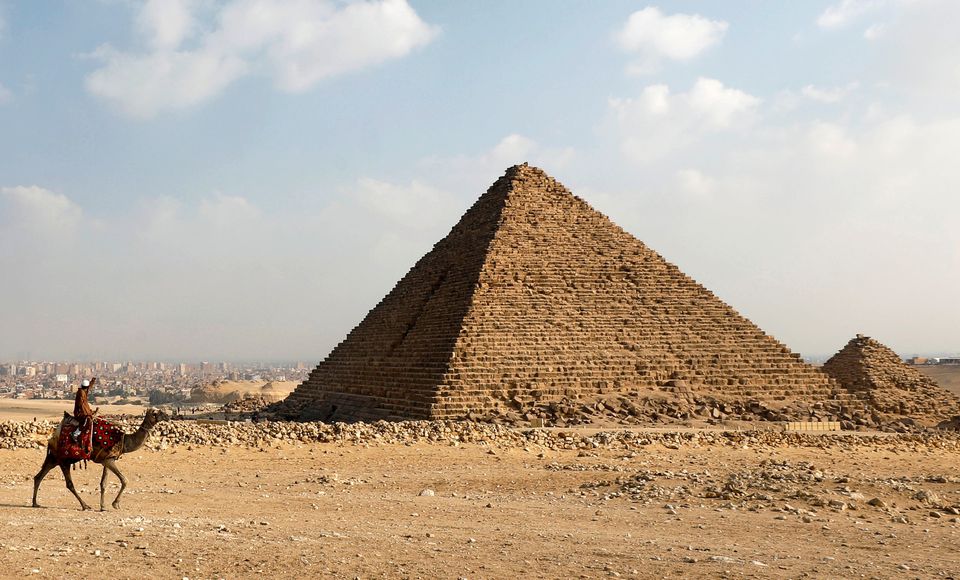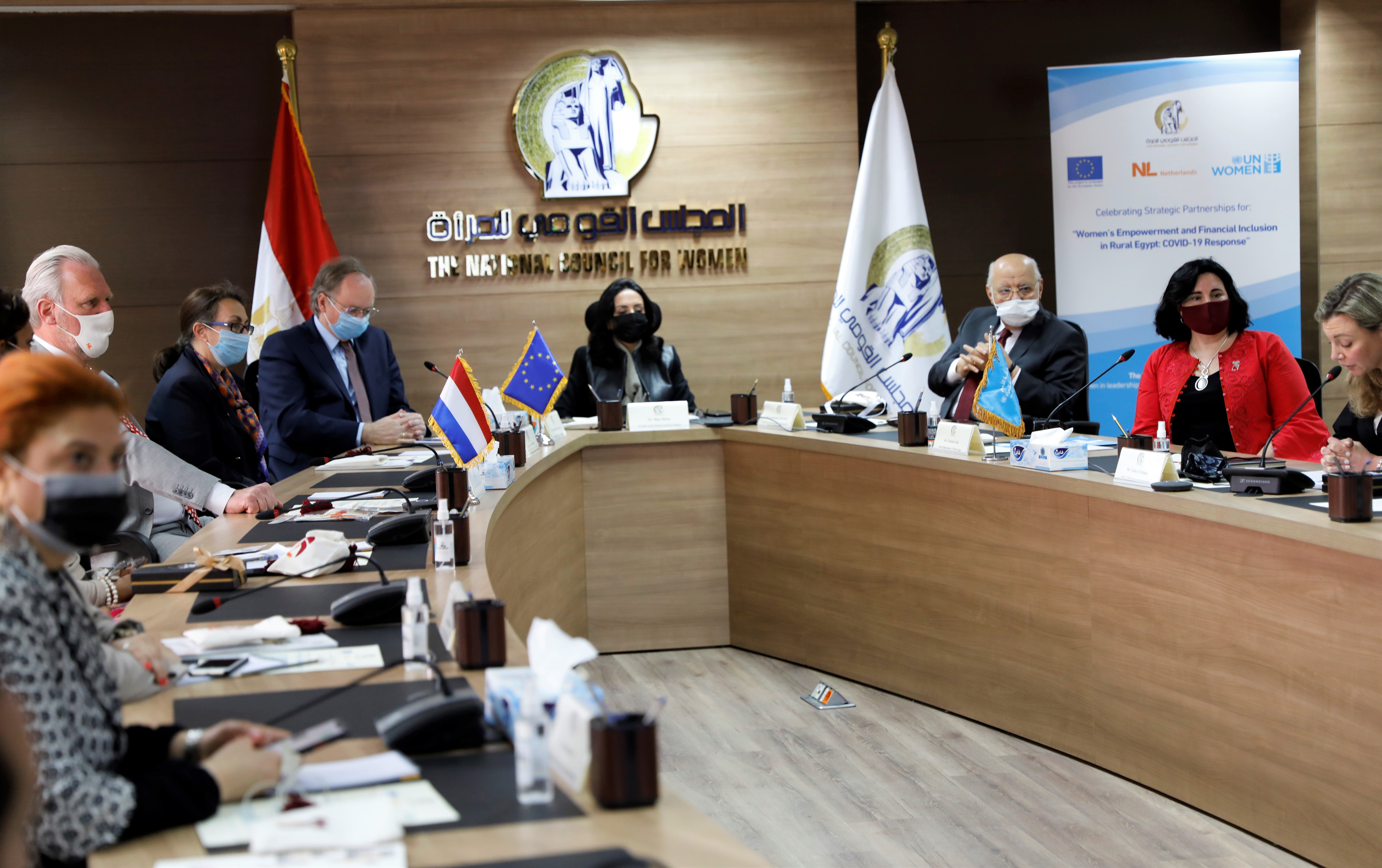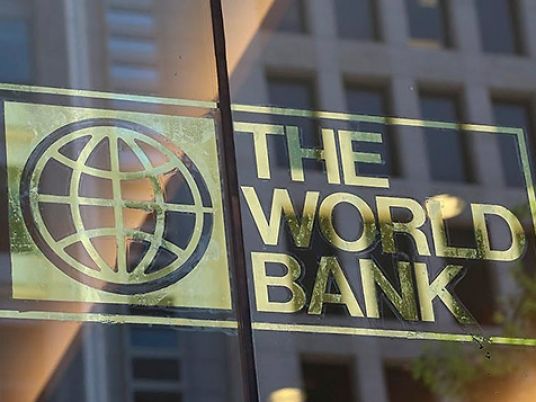More than a million farmers and workers in Egypt have lost land, been displaced and ill-treated by the state since 1992 because of a law that returned land to those who owned it before the land reform under former President Gamal Abdel Nasser.
But grassroots organization Sons of the Soil hopes to empower farmers and workers through education and help them organize farmers' protests, such as the demonstrations scheduled for Wednesday at the interim cabinet's headquarters to demand reclamation of land.
Agricultural expert Adel William, media analyst Mahmoud al-Mansy and agricultural lawyers Mahmoud and Yehia Gabr founded Sons of the Soil in January 2005 to address the needs and concerns of farmers and rural workers throughout Egypt.
Mansy, the organization's spokesman, said that all the founding members are from villages surrounding Cairo or have ties to rural areas, even though they are not farmers.
"We have witnessed repeatedly the plight of many family members and friends who, after cultivating a chunk of land for sometimes generations, were suddenly torn from their livelihood overnight without previous notice or explanation," he said.
Despite being one of the only registered forces for rural residents' rights over the years, the Sons of the Soil remains a relatively independent, small entity, consisting of 30 main members and around another 50 volunteers. They work out of a small office in Haram, Giza.
More than a million farmers have lost land since Law 96/1992, which offered farmers a non-negotiable, five-year transitional period, after which all land they claimed as a result of Gamal Abdel Nasser's 1952 agricultural reform law had to be returned to its original owners.
During the implementation of Law 96, then-Agriculture Minister Youssef Wali also sought to break up the agricultural cooperatives that had been instituted by the Nasser regime. Although the cooperatives were top-down, benefiting their elite shareholders, their break up was the final blow to the political power of the farmers.
Since 2005, Sons of the Soil has been actively involved in creating awareness among rural residents of their basic human rights, as well as putting pressure on various organizations attempting to further strip farmers of these rights.
“We understand that the problem looked at as a whole can be very overwhelming,” Mansy said. “So one of our biggest focuses is opposing several of the large organizations that have created some of the worst cases of land dispossession, where hundreds of thousands of feddans are concerned.”
One of these organizations is the Agrarian Reform Organization (ARO). Established in 1954 to support the needs of the farmers, it eventually turned against them to serve the interests of the state and landowners.
Another is the Principal Bank for Development and Agricultural Credit (PBDAC), which was formed in 1977 to provide financial services to farmers. The bank rapidly changed nature Minister Wali's control and offered faulty, compound interest loans to more than 470,000 farmers, using their illiteracy as a financial springboard.
Sons of the Soil has attempted to fight these organizations by publicizing their activities and filing lawsuits against conspicuous cases of injustice.
“These organizations, and others like them, have consciously conspired against the farmers using whatever means necessary: faulty loans, false promises, violence, etc.,” said Mansy.
“Many rural people, however, accept this fate out of powerlessness. So we seek not only to oppose these organizations ourselves, but to empower the farmers so that they are efficiently equipped to stand up for themselves.”
Sons of the Soil has three primary objectives when it comes to empowering people in rural areas: educate them on their rights as citizens with lectures, classes, workshops, and books on the agricultural history of Egypt and its laws, cooperatives and unions; translate this knowledge into protests with legitimate and obtainable demands; and develop a bottom-up syndicate.
The group has organized a protest Wednesday to demand the reclamation of land and the trial of Maged Ghaleb, the head of Al-Awqaf Authority, one of the organizations protesters accuse of committing rural injustices.
Sons of the Soil also recently met with the 25 January Revolution Youth Coalition, which has agreed to join the protests on Friday if the demands are not met.
However, the organization's third and most intrinsically important objective is the development of a syndicate with a political presence.
“What we are now doing is encouraging each community to create its own pyramid-structured organization,” Mansy said. “From these individual organizations, the most educated and honored will be the respective leader of the community, and each of the leaders from each individual pyramid will come together to form the farmer’s syndicate.”
The group hopes the syndicate will achieve enough political sway to ensure farmers’ resources and inputs at fair prices, as well as put pressure on the government to amend laws and prioritize farmer health insurance and pensions.
“The ultimate goal is to create the scenario where farmers have an equal and accepted presence in Egypt’s social and political landscape,” Mansy said.
Almost 30,000 farmers have already signed an agreement to implement the farmers syndicate pyramid scheme in their respective communities. The plan is expected to be fully implemented in September.
Despite having an understated presence in metropolitan Egypt, Sons of the Soil is regarded with respect among farmers and intellectuals alike..
“They’ve made us aware of communal concepts by teaching us to organize and work together as one team,” said Mohamed Abdel Nasser, a farmer from Sharqiya. “They empower us and ask for nothing in return other than that we fight for our rights as Egyptian people. For many of us they’ve been the only hope we’ve had.”
Ray Bush, a professor of African studies and development politics at the University of Leeds, said the group is an important advocate for human rights and development.
"It has been especially effective in promoting the concerns and interests of Egypt's rural poor – its continued work will be crucial in promoting the country's democratic consolidation after the revolution," Bush said.



